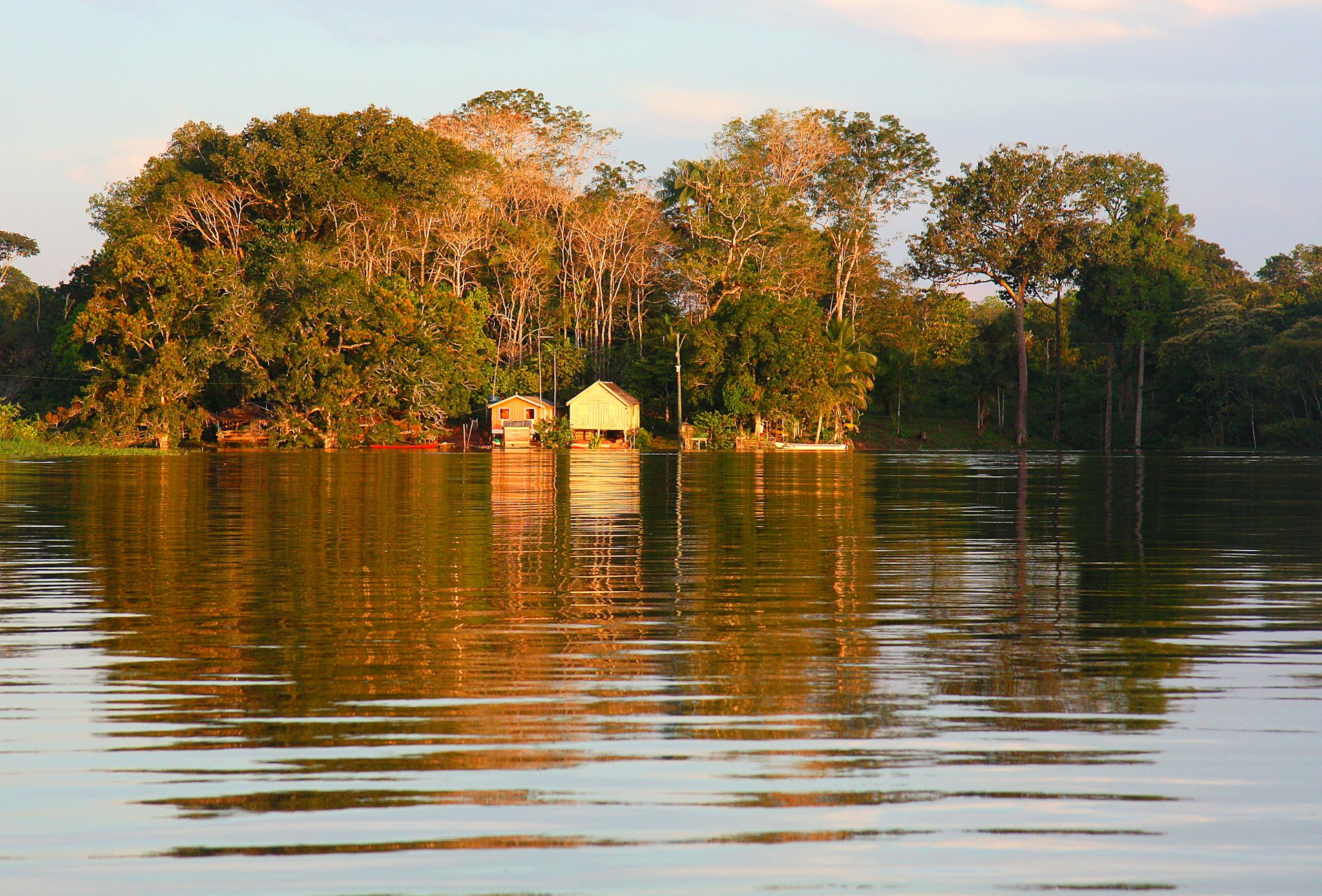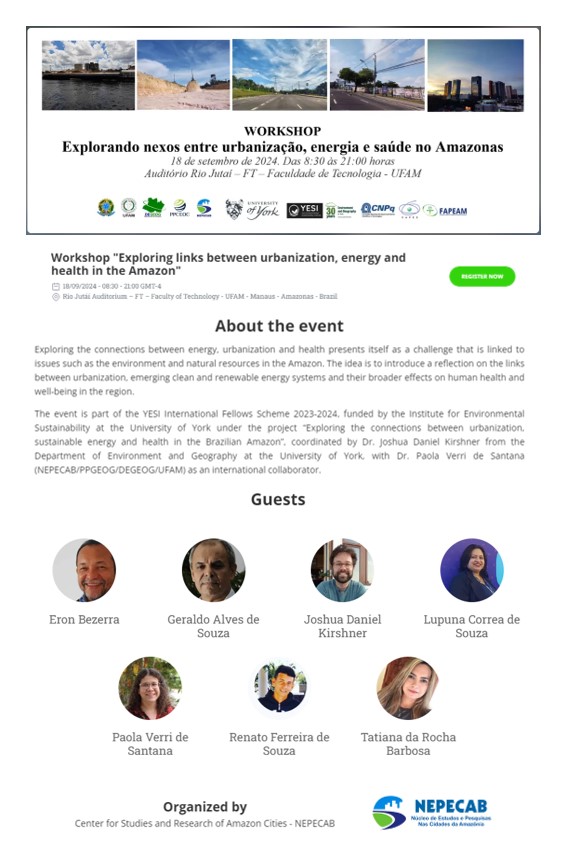
Exploring the connections between urbanization, sustainable energy and health in the Brazilian Amazon
Context
This international exchange aims to explore links between urbanisation, sustainable energy and health in the Amazon.
Dr Paola Santana is a geographer at the Federal University of Amazonas (UFAM) in Manaus. A specialist in urban geography, she coordinates the Núcleo de Estudos e Pesquisas das Cidades na Amazônia Brasileira (Centre for Research on Cities and Urbanization in the Brazilian Amazon – NEPECAB).
Our exchange will build on NEPECAB’s extensive research on the growth riverine urbanization in the Brazilian Amazon. We will draw on Santana and her colleagues’ expertise, along with Kirshner’s work on low-carbon energy for development, to examine links between urbanisation, emerging clean and renewable energy systems, and their broader effects on human health and wellbeing in the region. This collaboration will build a multi-institutional network to foster a new research agenda on energy geographies in the urbanising Amazon, including the impacts of electricity and clean cooking access on the lives of residents. It will also engage with YESI’s research theme of Environment and Health.
Aims and Objectives
This collaboration aims to build a multi-institutional network to foster a new research agenda on the institutional and geographic study of energy transition in urbanising areas of the Amazon, including the impacts of electricity and clean cooking access on the lives of residents. Further, it will contribute to YESI’s research theme on Environment and Health.
The focus will be on the Manaus urban region and interior cities of Amazonas state. During the visits:
- We will develop a review paper that integrates studies of urbanisation, electrification, energy resources and human development in the Brazilian Amazon.
- We will identify agencies to target for grant funding to further develop this work with ethnographic evidence and empirical case studies.
- We will hold a one-day workshop at UFAM on energy, urbanization and natural resources in Amazonas, inviting presentations from colleagues with related expertise.
- Site visits are envisioned to observe isolated energy systems in certain locations (e.g., Itacoatiara), a gas pipeline, and other features of the energy landscape.
Project Outputs
YESI International Fellows Seminar: The production of urban space in Amazonas state, Brazil.

Dr Joshua Kirshner, Department of Environment and Geography, University of York
Bio:
Joshua Kirshner is a senior lecturer in human geography in York's Department of Environment and Geography. His research and teaching bring together perspectives from critical geography, urban and regional development studies, and environmental planning and policy to examine the interrelations between resource governance, urban and environmental change, and the geographies of low-carbon transition. Before coming to York, he held posts at Durham University (UK), and Rhodes University and University of Johannesburg in South Africa.
Joshua is part of the UKRI project ‘Community energy and the sustainable energy transition in Ethiopia, Malawi and Mozambique (CESET),’ and he co-led a two-year project on ‘Electricity grid access histories and futures in Mozambique,’ supported by the UK FCDO through its energy and economic growth program. His current research examines energy transition in low-middle income countries and covers two broad topics. The first explores struggles over resource extraction, commodity frontiers and urbanization, and their implications for infrastructures and the built environment. The second engages in critical debates on the post-carbon transition, including the role of technology cooperation and transfer, local and community governance of renewables, planning for distributed systems, and access to clean energy technologies.
Josh participated in the Researcher Links workshop, 'Supporting sustainable ecosystems for poverty alleviation in the Amazon,' supported by British Council, Newton Fund and FAPEAM, hosted by Swansea University and UFAM, held in Manaus. He has a PhD from Cornell University in City and Regional Planning, an MA from University of California, Los Angeles in Urban Planning, and a BA from Harvard University in Social Anthropology. He grew up in Nashville, TN.
Paola Verri de Santana, Department of Geography, Universidade Federal do Amazonas (Federal University of Amazonas - UFAM)
Bio: Paola de Santana is Professor of the Postgraduate Program in Geography in the Federal University of Amazonas (UFAM). She coordinates the Center of Studies and Research of Cities in the Amazon - NEPECAB. Her research focuses on urban and economic geography, geography and culture, nature, urban development, and production of urban space.
She has led multi-sited research projects on the dynamics of Amazonian cities, urban management and the Amazonian urban network, and impacts of the state-owned oil and gas firm Petrobras's activities in cities in Amazonas. This work has been funded by the Brazilian federal government, through its National Council for Scientific and Technological Development (Conselho Nacional de Desenvolvimento Científico e Tecnológico - CNPq). Paola was an participant in the Researcher Links workshop, 'Supporting sustainable ecosystems for poverty alleviation in the Amazon,' supported by British Council, Newton Fund and FAPEAM, hosted by Swansea University and UFAM, and held in Manaus. She holds an MA and PhD in Human Geography from the University of São Paulo and a BA in Economics from the Federal University of Pernambuco. Paola grew up in Recife, Pernambuco, in northeast Brazil.


